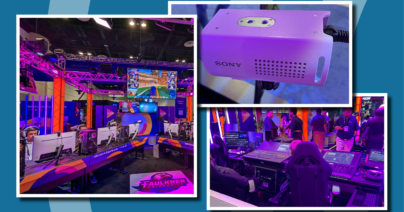 Articles
Articles
AV Systems Design: The Core of Every Collegiate Esports Facility
Since the early days of video games, gamers have been competing head-to-head to test each other’s skills. What has changed over the years, however, is how…
Esports is a multi-player video game competition, played by professional and amateur gamers in front of live (and often virtual) spectators. The rapid growth in Esports’ popularity–along with technological advancements and increased funding–has ignited a competition among higher education institutions to establish varsity Esports teams with specialized gaming studios on their own campuses.
Physical spaces for Esports vary, ranging from full-sized arenas to smaller, dedicated rooms. Because of this, the technology needs to meet the needs of individual spaces and the increasing variety of tournament styles. In-house video production is also an important consideration. Esports broadcasts may combine many components when live-streaming a multi-player tournament, including individual players’ monitors, microphones to capture audio feeds, and dramatic mood lighting or smoke machines for special effects.
Acentech’s technology consultants have the in-depth audiovisual and telecommunications experience to guide architects and facilities managers tasked with making their varsity or professional Esports vision a physical reality.
We work with architects, owners and facilities managers from early programming and schematic design through all construction phases of a project. Our consultants are Registered Communications Distribution Designers (RCDD) and Certified Technology Specialists (CTS, CTS-D) who keep current on the latest technical rollouts, including Extron’s Esports Design Guide, an industry standard.